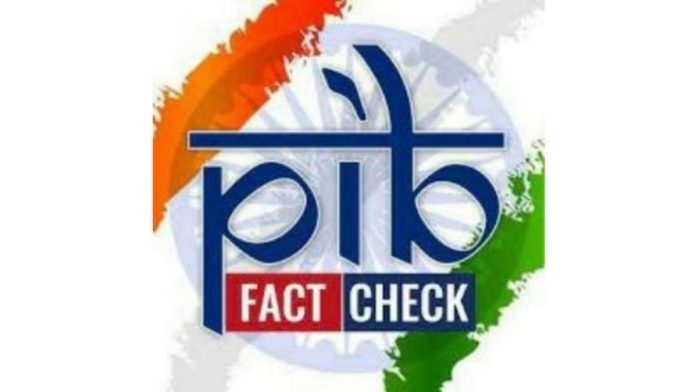– Shayma S
New Delhi, March 23: On Wednesday, a few weeks before the upcoming general elections, the Ministry of Electronics and Information Technology notified the Press Information Bureau’s Fact-Check Unit as the official designated FCU for the Union Government. It would be the designated body to flag misinformation about Central government departments on social media platforms. Any information concerning Central Govt flagged by the FCU as false would have to be taken down by social media intermediaries. Since the proposal had been fairly contentious, the Centre had put off officially notifying the proposed unit, especially since litigation was ongoing in the Bombay High Court.

However, the Court declined to extend an interim stay on the proposed unit this month. This led to the notification. Setting aside the Bombay HC order, which denied interim relief to petitioners challenging the constitutionality of the 2023 amendment to the IT Rules, the Supreme Court has stayed the notification for the constitution of the Fact-Check Unit. The stay order was given as appeals were filed against the Bombay HC, which paved the way for the FCU to be constituted. The March 11 order of the Bombay High Court denied the petitioners’ case in a 2:1 judgment.
Although a three-judge bench led by Chief Justice DY Chandrachud, along with Justices JB Pardiwala and Manoj Misra, desisted from delivering an order on merits, they raised concerns about the various constitutional questions a possible fact check unit operated by the Centre would involve.
The proposed FCU, which was already under the PIB, was cited to act as a “deterrent” against the creation and dissemination of fake news or misinformation regarding the “business” of the Centre. This has raised concerns among free speech activists about whether this would inevitably entail censorship over any criticism of the Central government’s policies. The controversial April 6, 2023 amendment of the IT Rules 2021, which led to concerns over the possibility of a fact check unit of this sort, set the stage for the current development.
It said, “To be precise, intermediaries are not permitted to “host, display, upload, publish, transmit, store, update or share any information in respect to any business of the central government that is identified as fake or false or misleading by such fact-check unit”.
Journalists then expressed concerns that fact-check units cannot be associated with governments and must be independent to fulfil their stated objective of fact-checking. Back in 2023, The Hindu’s editorial had said the PIB could not be the “sole arbiter of truth” and said the proposed amendment “needs to be opposed without even a second look”.
The PIB’s fact-check unit, set up in 2019, is notoriously unreliable. While it gets some things right, like checking fake WhatsApp forwards, most of its “fact-checks” are simply denials of media reports that are critical of the government, such as its COVID-19 strategy back in 2020 or when Indian Express in May 2020 reported that a popular audio clip of Tabhlighi Jamaat’s Maulana Saad might have been doctored. The Delhi Police rejected the report, and the PIB’s FCU swiftly said the Express story was unverified.
Only last week, the FCU declared that the Al Jazeera article calling the CAA an anti-Muslim Act was “fake.” This also comes in the larger context of the amendments to the IT Rules. In a gazette notification, earlier this month, the Ministry of Electronics and Information Technology made amendments to the Information Technology (Procedure and Safeguards for Interception, Monitoring and Decryption of Information) Rules. The amendment grants the Union and state home secretaries power to delete interception, monitoring, and decryption records within six months, including electronic as well as non-electronic records. Not only does this hamper the scope of the RTI Act, it also can lead to greater surveillance. The amendment also widened the scope of who can destroy records from security agencies to also include the “competent authority” – in this case, the Union and state home secretaries. According to digital rights and Internet freedom activists, this will allow the government to further evade accountability.




